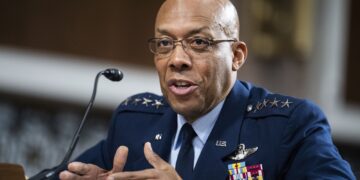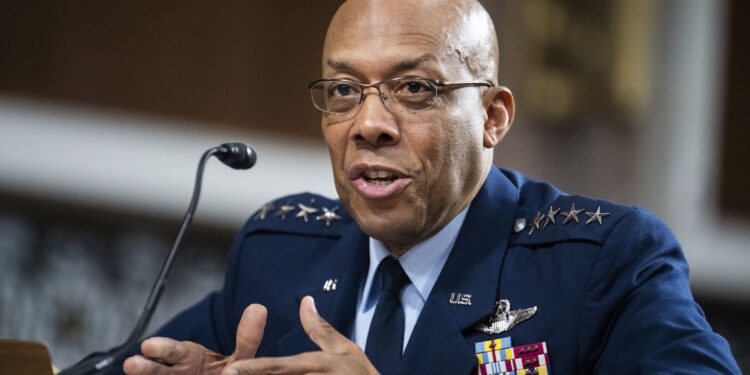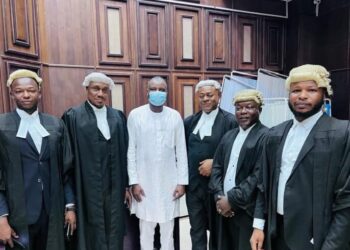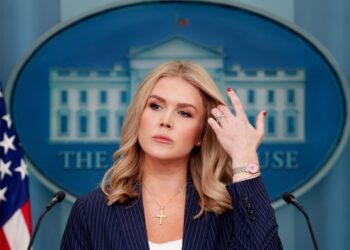By Ebi Kesiena
Chairman of US Joint Chiefs of Staff, General CQ Brown, is set to meet with military counterparts this week at a defense conference in Botswana, as the forced withdrawal of U.S. troops from bases in Niger and Chad, and the potential repositioning to other West African nations, will top discussions.
According to media reports, the conference will offer General Brown a chance to engage with African defense leaders, and to understand their objectives and concerns.
Speaking to reporters as he travelled to Gaborone, Brown said that as the U.S. pulls its 1,000 troops out of Niger, including from a critical counterterrorism and drone base there, other West African nations want to work with the U.S. and may be open to an expanded American presence.
“There are other countries in the region where we already have either a small presence or established relationships,” Brown stated. He emphasized the importance of building on these relationships to possibly reposition capabilities formerly stationed in Niger.
The U.S. needs to have a dialogue with those nations to see what type and size of U.S. military presence they would want, he said, adding, “That’s why this conference is important.”
Brown and other defense officials say the conference is a chance to show African leaders that the U.S. can listen and accept local solutions.
The U.S. said one defense official has to adjust to the solutions that Africans have identified and not impose external Western ideals.
Meanwhile international observers are concerned about troop reductions in Africa’s Sahel region, noting that this could lessen the fight against extremist groups, adding that the U.S. is particularly worried about the spread of extremist activities into coastal West Africa.
Recall that Niger’s ruling junta ordered U.S. forces out after the July coup that ousted the democratically elected president, with the junta turning to Russian mercenary group Wagner for security assistance.
The withdrawal of U.S. forces and equipment from Niger is about 30% complete and is expected to finish by September 15th.
Following Niger, Chad ordered U.S. forces out of Adji Kossei Air Base, leading to the relocation of about 75 U.S. Army special forces to Europe. Currently, around 20 U.S. troops remain in Chad, alongside Marine security forces at the U.S. Embassy. The U.S. describes the troop cuts in Chad as temporary, pending review now that the presidential election is over.
However, Brown noted that future U.S. presence in Chad would be evaluated in collaboration with embassy leadership.
Some African nations have expressed frustration with U.S. insistence on democracy and human rights, the conference will therefore navigate these tensions and reinforce military relationships across the continent.




































